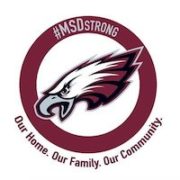Helping Neurodivergent Students Accept Criticism
But I don’t want to hear it…
Growing up is full of criticism, and that’s because we are learning. For those individuals with Neurodivergent traits accepting criticism can be especially difficult. Not everything we do will be perfect the first time around, no matter how much we want it to be, and although we cannot choose to avoid it, we can choose how we react to it. Often, criticism can help us to become better. It can help our writing become stronger, our ideas to become more creative, and overall life to be more fulfilling, yet sometimes it can hurt our feelings. Sometimes when we work really hard on something and someone has some criticism about it, we can feel emotional. However, it is important to be respectful when both accepting and giving criticism.
If children, teens, and young adults lash out or become violent when hearing something negative, it can cause our friends or others not to want to try and help us become better. This can then lead us to not reach our fullest potential because if we think everything is perfect on the first draft, then we will never learn how to make anything better. Accepting criticism in an age appropriate and socially acceptable way helps us socialize as well. If our peers feel as if they are comfortable telling us something like criticism, it shows that they trust us to respond in a way that is acceptable and allows for our friends to help us become better at whatever it is we are speaking about or doing. Yet, for those with neurodivergent traits, accepting criticism can be difficult. They may find it hard to accept that they are doing something incorrectly or not to their fullest, and if their friends cannot be open and say that they don’t like something that their friend does or give criticism about their friendship so it can become better, then they may not want to socialize with them anymore. This can then cause children, teens, and young adults to be unable to make and nurture friendships and relationships, and as time goes on, become isolated, but with the proper help, accepting criticism can be made easier.
At the Support for Students Growth Center, we provide the social, behavioral, educational, emotional, and executive functioning skills children, teens, young adults, and their families who may be Neurodivergent or not need for a happy and successful life in and out of school settings. Our team of professionals offers individualized and family coaching/counseling and social skills groups to help teach skills such as how to accept criticism to ensure parents do not have to worry that their kids will be unable to make and maintain a functioning independent life on their own. So, if your child is struggling with skills like the ones listed above and much more, the SSGC is equipped with the tools to help.
Click here and call now to schedule your FREE 20-minute individualized screening- $150 value
Dr. Eric J. Nach, Ph.D., M.Ed., A.S.D.C., is a Developmental and Behavioral Specialist who specializes in Autism, ADHD and related disorders. Dr. Nach is the founder of the Support for Students Growth Center and College Life Skills Program where he and his team of professional’s help develop the Emotional Maturity, Executive Functioning, Life Skill and Social Abilities of children, teens, young adults and college students and those high school students preparing for college.





